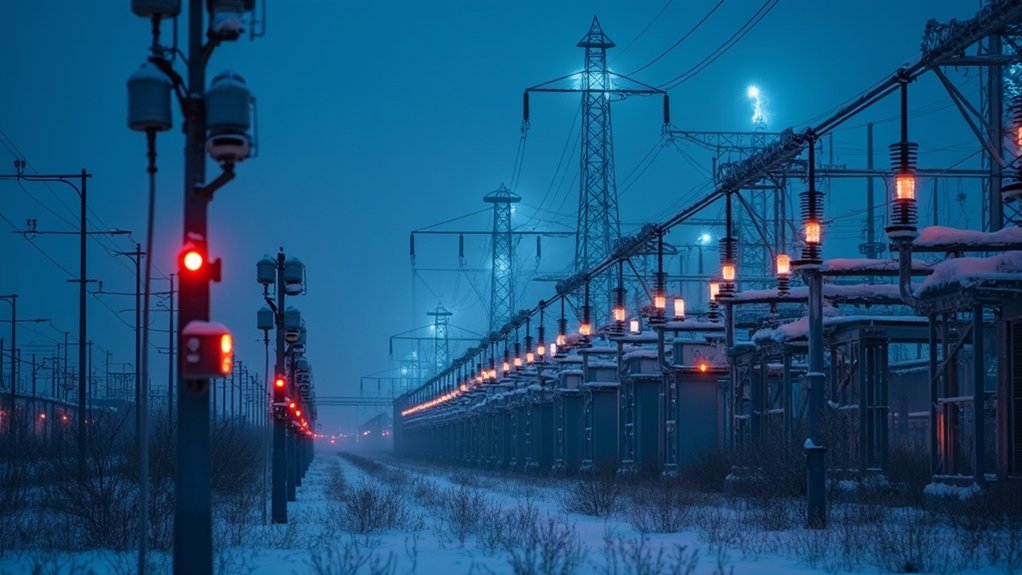How does a nation catch crypto miners who are stealing electricity? For Russia’s power engineers, the answer involves some surprisingly clever tactics – including deliberately cutting internet access to flush out the culprits. And it’s working. They’ve already identified 900 unauthorized mining operations through their crafty detective work. In just one operation in Dagestan, these unauthorized miners were consuming 3.2 megawatts of power – enough electricity to power 1,500 homes.
These engineers aren’t messing around. They’ve developed specialized techniques to spot the telltale power consumption patterns of crypto mining rigs. When they see suspicious spikes in electricity usage, they know exactly what they’re dealing with. It’s like catching digital fingerprints, only these fingerprints come with massive power bills.
Russian engineers track crypto miners like digital detectives, following the power-hungry footprints of their hidden rigs across the grid.
The Russian government isn’t taking this lying down either. Starting January 2025, they slapped mining bans on 10 regions during winter months. Irkutsk Oblast, once Russia’s premier Bitcoin mining hub, got hit with the country’s first year-round ban until 2031. The Chamber of Commerce wants broader discussions with businesses before any final decisions are made. Tough luck for miners there.
More regions like Khakassia, Karelia, and Penza might be next on the chopping block. The reason? Simple math. The power grid can’t handle both crypto mining operations and regular electricity needs, especially during those brutal Russian winters.
Some industrial miners in Karelia suggested higher tariffs instead of outright bans, but Moscow seems pretty set on playing hardball. The crackdown spans from Southern Siberia to the North Caucasus, including Russian-controlled territories in Kherson.
Even Russia’s “shadow territories” are getting in on the mining action, though they play by different rules – using their mined coins for everything from influence operations to dodging sanctions.
The cat-and-mouse game continues. As detection capabilities improve, miners get more creative in hiding their operations. But with grid monitoring systems getting smarter and engineers developing new tracking methods, illegal miners are finding fewer places to hide.
The message is clear: Russia’s power engineers are winning this high-stakes game of hide and seek, one blackout at a time.





